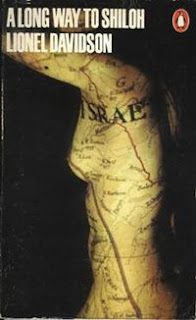Not long ago the Page One bookshop in the Taipei 101 shopping centre was listed in their directory as an 'anchor tenant'. It was one of the bulwarks that the place was built on and, even better for a native English speaker, roughly half the stock is in English.
Originally it was a vast place that you could perambulate at leisure going almost full circle before finding yourself at the cash desk. For a while, all seemed well. The shop even spawned a smaller, more crowded, offspring in a lavish new Sogo Department Store at Zhongxiao Fuxing.
Since those days, however, there has been something of a decline in fortunes. Maybe the rot started to set in when Eslite opened their vast store just a few blocks away. Maybe the market for book sales, particularly English ones, in Taiwan just isn't what it was.
The Sogo branch came and went, but then something more sinister occurred. The 101 store lost half of its size, like a relative suddenly stricken with a wasting disease. That was bad enough, but it seems that another indignity has befallen her.
The fourth floor of the shopping mall, once a place of restaurants and coffee shops with access to the entrance to the 'Observatory' on the higher floors of the tower. When first built, and the tallest building in the world, Taipei 101 was a curiosity mainly for Taiwanese and the relatively few Western tourists that go to Taiwan.
Everything has changed now and relaxations in the rules on Chinese tourists mean that it is now one of the 'must-see' stops on a whistle-stop tour of Taipei. Tens of thousands a year now sandwich in a ride up the tower alongside a trip to the National Palace Museum and the Chiang Kai-Shek Memorial Hall.
To the owners of the 101 shopping mall, this is truly manna from the mainland. The restaurants and coffee shops have gone and the fourth floor has been remodelled to add even more eyewateringly expensive designer outlets with extravagant goods and prices. The fifth floor, where a seemingly never-ending queue of Chinese are patiently waiting to herded into the lifts to the eighty-ninth, has been transformed into an electronics boutique that looks as if it has been bodily lifted from Hong Kong airport. Tellingly the prices are in RMB and JPY before TWD, they know their customers.
So what about that relatively veritable (by Taiwan standards anyway), Page One? She is still there, but the already shrunken shop is accessed through what looks like a fire escape. The few pictures on the wall of a slightly drab corridor do little to disguise that is what it is. The shop itself is still spotless and carries an eclectic range of English books (probably the best in Taiwan), but is a shadow of what it used to be.
I wonder if it is time to bow to the inevitable and relocate? The Chinese have won here, their spending power was always going to outbid the bibliophiles. Where would be good though? It needs to be somewhere that both expats and tourists can find easily and being an interesting enough location to attract the local customers who would still be their bread and butter. Perhaps somewhere near Taipei Main Station which been gradually improving since the HSR arrived and will get even better when the airport MRT kicks in.
Page One has a different 'feel' to it from the Taiwanese bookstores and it would be a shame if that was lost. Many people have predicted the end of the high street bookseller in Europe and North America thanks to the power of the internet.
Bookshops are incredibly popular in Taiwan, not least because it is culturally acceptable to pluck a tome from a shelf, drop down to the floor and sit there all day reading it. That doesn't stack up financially of course, but bookstores don't seem to be closing down at the rate they are in, say, the UK.
Visiting today was like going to see an old friend who, despite going through hard times, was still making a great effort. I hope the effort is worth it and that Page One don't disappear from Taiwan altogether.




